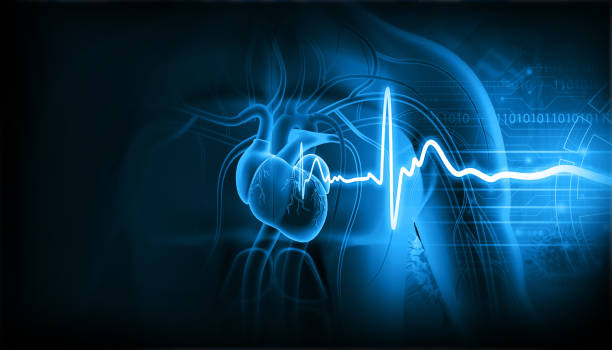What to expect from your first Cardiologist near me appointment
What to expect from your first Cardiologist near me appointment
Blog Article
Comprehending the Importance of Cardiology in Modern Health Care Providers
Cardiology plays an important role in modern healthcare, especially as cardiovascular disease continues to be the leading root cause of mortality worldwide. Developments in diagnostics and treatment have changed client care, enabling earlier treatments and improved end results. The change towards preventive cardiology empowers individuals to handle their health proactively. As modern technology continues to advance, the integration of ingenious services may further redefine cardiology's influence on public health and wellness, motivating a better examination of emerging fads and their ramifications.
The Prevalence of Heart Illness and Its Influence on Public Health
Heart disease continues to be the leading cause of fatality globally, its effect extends much beyond individual patients to influence public health and wellness systems and economic climates. The high occurrence of cardiovascular disease places a considerable strain on health care resources, requiring enhanced financing for rehabilitation, prevention, and therapy programs. Public health efforts should deal with danger factors such as weight problems, smoking, and less active way of livings, which contribute substantially to the climbing incidence of heart conditions.Moreover, the financial concern related to heart illness is enormous, including not only straight clinical prices but also indirect costs associated to lost performance and premature mortality. Areas deal with challenges in managing these prices, frequently leading to variations in healthcare accessibility and end results. As the population ages and lifestyle-related dangers proceed to rise, the necessity for effective cardiology interventions becomes paramount. Resolving heart illness is not just an issue of individual health but likewise an essential public health and wellness concern.
Advances in Heart Diagnostics and Imaging Techniques
Current developments in cardiac diagnostics and imaging methods have changed the area of cardiology, enhancing the capacity to find and keep track of heart problem. Techniques such as heart MRI, CT angiography, and echocardiography have ended up being progressively advanced, offering detailed pictures of heart structures and functions. These methods enable the very early recognition of problems like coronary artery disease, cardiac arrest, and valvular disorders.Moreover, innovations in non-invasive diagnostics, such as wearable modern technology and remote monitoring tools, have actually equipped people and doctor. These tools facilitate real-time monitoring of heart rhythms and other vital indications, resulting in prompt treatments. Additionally, synthetic knowledge is being incorporated right into imaging evaluation, improving accuracy and effectiveness in medical diagnosis.
Advancements in Therapy Alternatives for Heart Conditions
Current innovations in cardiology have brought about considerable advancements in therapy options for heart conditions. These include advanced surgical methods that improve step-by-step results and emerging medications that use new avenues for therapy. As the field evolves, these innovations play an essential duty in improving individual treatment and end results.
Advanced Surgical Techniques
Innovations in medical techniques have transformed the landscape of cardiology, using brand-new wish for patients with heart disease. Minimally invasive treatments, such as catheter-based treatments, have actually substantially lowered recuperation times and hospital stays. Techniques like robotic-assisted surgical treatment enhance accuracy, permitting cosmetic surgeons to browse complex physiological structures with higher accuracy. Advancements in imaging technology assist in real-time visualization throughout treatments, improving end results. Transcatheter aortic valve replacement (TAVR) exhibits an innovation in treating aortic constriction, making it possible for shutoff replacement without open-heart surgery. Additionally, hybrid techniques that integrate medical and catheter-based techniques provide tailored options for various cardiac concerns. These sophisticated medical techniques not just boost individual security yet likewise broaden therapy alternatives, emphasizing the essential duty of innovation in contemporary cardiology practices.
Arising Therapies and medications
As the landscape of cardiology remains to evolve, arising treatments and medications play an essential function in enhancing therapy choices for heart problems. Technologies such as novel anticoagulants and progressed lipid-lowering representatives have transformed the management of cardio diseases, substantially minimizing patient morbidity and death. Furthermore, the growth of gene therapies and regenerative medication uses promising opportunities for dealing with problems previously considered incurable. Medical trials are constantly revealing the efficiency of these treatments, pressing the boundaries of typical therapies. The assimilation of digital health innovations facilitates customized medication, enabling for tailored therapy strategies based on hereditary and lifestyle factors. Collectively, these advancements underscore the vibrant nature of cardiology, boosting patient results and redefining requirements of treatment in modern-day healthcare.
The Role of Preventive Cardiology in Individual Care
Preventive cardiology plays an important function in client treatment by concentrating on the identification of threat aspects that contribute to heart illness. With lifestyle alteration approaches and very early discovery strategies, medical care providers can efficiently minimize the incidence of cardio events - Cardiology care. This proactive strategy not just boosts patient results however also advertises lasting health and wellness
Threat Variable Recognition
While heart diseases remain a leading root cause of morbidity and death worldwide, effective danger element recognition functions as a keystone of preventive cardiology. Identifying danger variables such as hypertension, hyperlipidemia, family members, and diabetes mellitus background is necessary for very early intervention. Healthcare experts make use of numerous evaluating techniques to assess these variables, enabling tailored precautionary procedures. Additionally, comprehending a patient's way of life options, such as smoking cigarettes and physical inactivity, additionally educates risk evaluations. This comprehensive evaluation makes it possible for clinicians to develop customized care strategies targeted at mitigating risks. By prioritizing threat factor recognition, health care systems can boost person outcomes and reduce the general concern of heart diseases, ultimately contributing to enhanced public wellness methods and resource allowance.
Way Of Living Modification Techniques
A wide range of studies highlights the important function of way of living modification techniques in reducing heart disease threat. These strategies encompass nutritional modifications, enhanced physical activity, smoking cigarettes cessation, and weight administration. By taking on a heart-healthy diet abundant in fruits, vegetables, whole grains, and lean proteins, people can lower cholesterol levels and high blood pressure. Regular physical task reinforces the heart and boosts overall cardiovascular wellness. Furthermore, quitting smoking significantly reduces the risk of heart look what i found illness and improves healing prices for those with status quo. Weight management additionally contributes to cardiovascular health by minimizing other threat factors such as diabetic issues and high blood pressure. Executing these way of living changes not only advertises specific health but likewise acts as a foundation of preventative cardiology in client treatment.
Early Discovery Strategies
Way of living modifications greatly add to decreasing cardiovascular condition risks, however they are most reliable when matched with very early discovery techniques. Precautionary cardiology stresses the significance of identifying potential heart concerns prior to they rise into major problems. Strategies such as high blood pressure tracking, cholesterol testing, and progressed imaging innovations like echocardiograms play crucial duties in reviewing cardiovascular health and wellness. Biomarkers and genetic screening additionally enhance the accuracy of early discovery, permitting customized preventative approaches. Regular heart threat examinations encourage medical care providers to interfere proactively, potentially protecting against heart attacks and strokes (Dr Garcia). By integrating these early discovery methods into regular care, patients can profit from prompt way of living treatments and targeted therapies, inevitably boosting outcomes and enhancing lifestyle
Integrating Modern Technology Into Cardiology Practices
As improvements in innovation remain to improve various areas, the assimilation of cutting-edge devices and systems into cardiology practices has ended up being necessary for boosting person treatment and end results. Telemedicine systems permit cardiologists to check patients remotely, boosting access to care while decreasing the burden on health care centers. Wearable tools, such as smartwatches, make it possible for continual heart price monitoring, alerting both physicians and patients to potential concerns in real-time. Additionally, man-made knowledge (AI) is being utilized to assess substantial quantities of cardiac data, helping in early medical diagnosis and personalized therapy strategies. Advanced imaging techniques, including 3D echocardiography, boost visualization of heart frameworks, resulting in a lot more precise treatments. Electronic health records (EHRs) simplify person information management, guaranteeing that cardiologists have prompt access to vital information. With each other, these technological developments are transforming cardiology, advertising aggressive administration and boosted health and wellness results for patients with cardiovascular problems.
The Significance of Person Education And Learning and Involvement
Individual education and interaction play a critical function in the management of cardiovascular wellness. By furnishing patients with knowledge concerning their problems, treatment alternatives, and lifestyle adjustments, medical care companies empower people to his comment is here take an active duty in their care. This positive approach can bring about enhanced adherence to prescribed medications, nutritional modifications, and exercise programs, ultimately decreasing the risk of complications.Engagement likewise promotes a strong patient-provider partnership, urging open interaction and trust. When people really feel notified and entailed, they are more probable to voice issues and ask questions, which can result in much better clinical end results. Additionally, educational sources, such as workshops or digital systems, can enhance understanding and advertise self-management techniques. Generally, focusing on client education and involvement is crucial for boosting cardiovascular wellness, enhancing lifestyle, and decreasing medical care expenses related to cardio diseases.
Future Fads in Cardiology and Their Prospective Influence

Frequently Asked Concerns
What Way Of Life Modifications Can Decrease Heart Illness Threat?
The current inquiry addresses lifestyle modifications that can greatly lower cardiovascular disease threat. Cardiology care. Taking on a well balanced diet plan, taking part in regular exercise, preserving a healthy weight, managing stress, and preventing cigarette can notably boost cardio health and wellness
Exactly How Can I Identify Early Indications of Heart Troubles?
Acknowledging very early indicators of heart problems involves monitoring signs and symptoms such as upper body pain, lack of breath, fatigue, and uneven heart beat. Prompt awareness of these signs can trigger needed clinical examination and treatment for much better outcomes.
What Are the Distinctions In Between Cardiologists and Cardiac Surgeons?
The differences between cardiologists and heart specialists lie in their functions; cardiologists largely diagnose and click for info manage heart disease with non-invasive methods, while cardiac doctors do operations to remedy architectural heart concerns. Each plays an essential, unique role.

Exactly how Typically Should I Obtain My Heart Health And Wellness Checked?
The regularity of heart medical examination varies based on individual threat aspects. Normally, grownups need to undergo examinations every one to 2 years, while those with current conditions might call for more frequent analyses as recommended by healthcare professionals.
What Function Does Genetics Play in Heart Illness Threat?
Genes greatly affects heart condition danger, with familial patterns suggesting inherited problems. Certain genes can predispose people to high blood pressure, cholesterol concerns, and various other cardio troubles, highlighting the relevance of genetic testing in assessing heart wellness. Heart disease continues to be the leading cause of death worldwide, its effect extends far beyond individual people to influence public health systems and economies. Public health and wellness efforts should deal with risk variables such as weight problems, smoking, and sedentary lifestyles, which contribute significantly to the climbing incidence of heart conditions.Moreover, the economic problem connected with heart disease is immense, encompassing not only straight medical costs yet likewise indirect expenses associated to lost productivity and premature death. Precautionary cardiology plays an important duty in individual care by focusing on the identification of danger variables that add to heart illness. Synthetic knowledge (AI) and equipment discovering are enhancing diagnostics and person tracking, enabling early discovery of heart illness. The distinctions in between cardiologists and cardiac doctors lie in their functions; cardiologists mainly manage and diagnose heart conditions with non-invasive approaches, while heart doctors do medical treatments to remedy structural heart problems.
Report this page